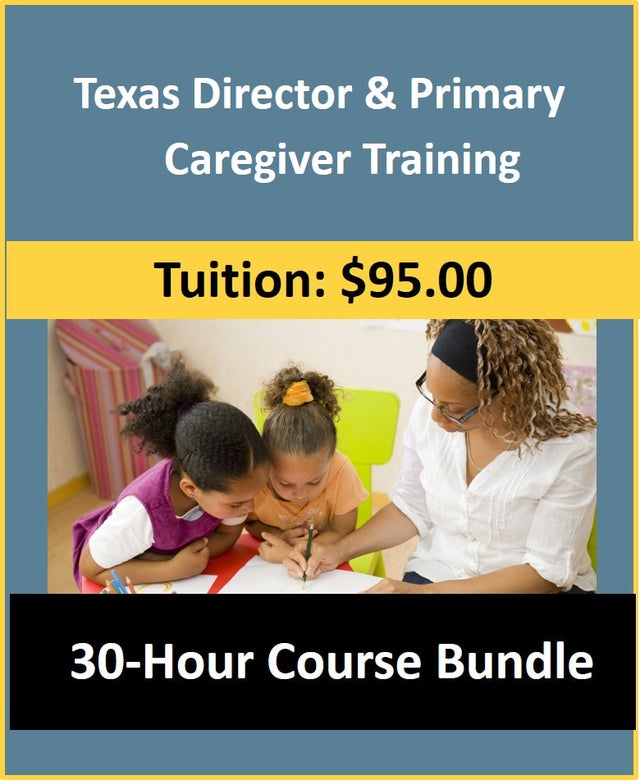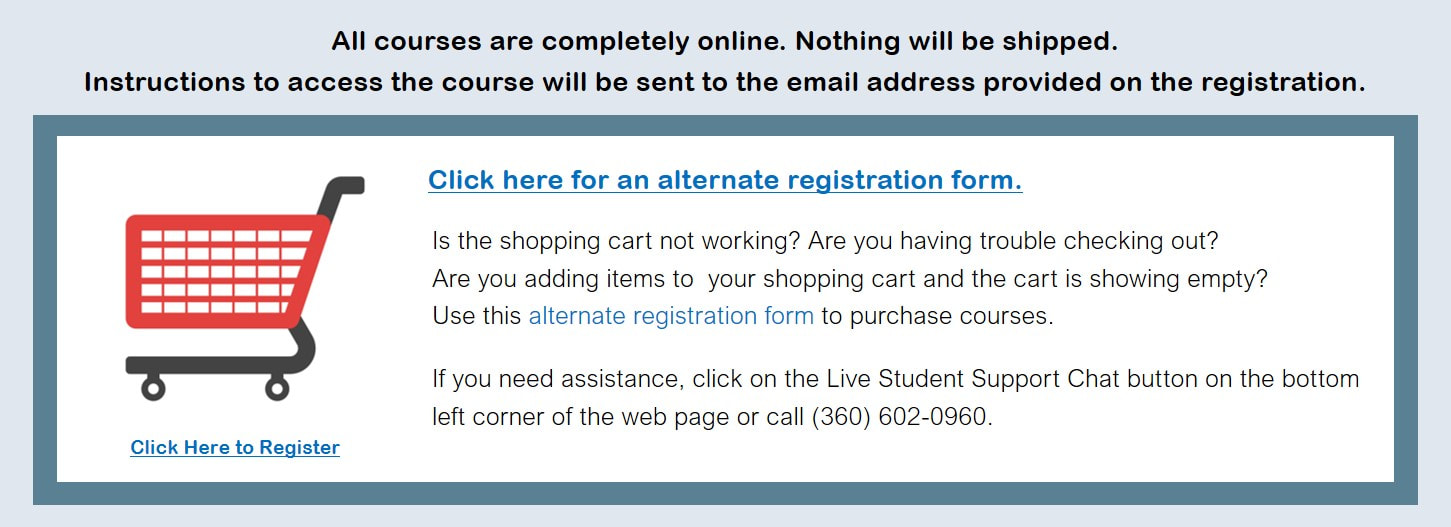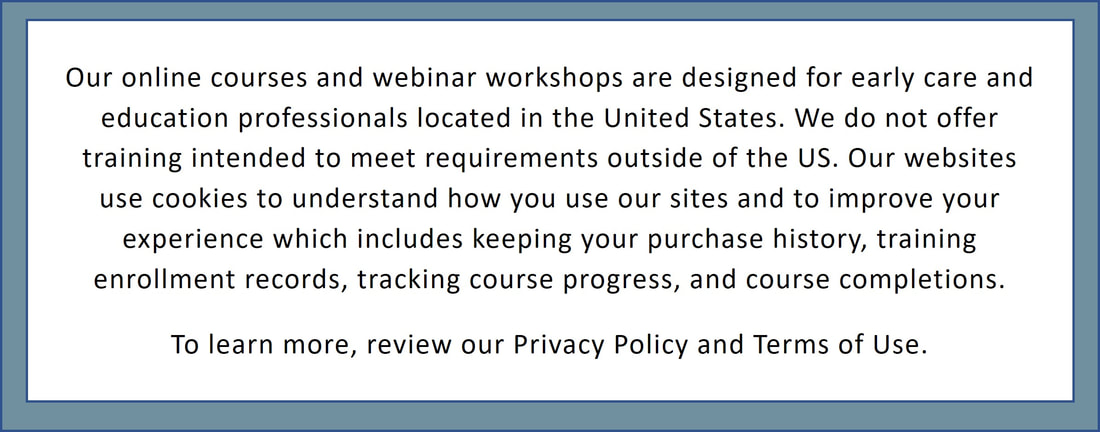Texas Annual Training for Directors and Primary Caregivers (30 Hours)
SKU:
$95.00
$95.00
Unavailable
per item
30 Hours Professional Development Online
Click here to enroll in the course for immediate access now.
Texas Director and Primary Caregiver Training
This instructor-led course satisfies the 30 hours of the annual Texas in-service requirement for Center Directors (§746.1311) and Primary Caregivers in Child-Care Homes (§747.1309).
30 Clock Hours of Early Childhood Education
Kimberlee Turner: Texas Approved Master Trainer #34928
Module 1: Healthy Practices in Early Childhood Education
|
Module 1 Includes the following topics:
|
Texas Core Competencies:
|
Module 2: Building Connections with Children
|
Module 2 Includes the following topics:
|
Texas Core Competencies:
|
Module 3: Professionalism and Leadership
|
Module 3 Includes the following topics:
|
Texas Core Competencies:
|
Technical Requirements:
- Laptop or PC
- Most students are able to use mobile devices such as tablets to complete courses. However, each device is different, and an individual's skill level with the device may determine their success with using a mobile device.
- Recommended web browser: Google Chrome
- Microsoft Edge, Safari and Firefox are other acceptable browsers.
- Internet Explorer is no longer supported by Microsoft, and you may have issues if you use it to take training.
- Make sure you’re using a current operating system (for example, Windows 10 or Apple OS).
- Outdated operating systems may cause technical difficulties.
- Slow internet speed may impact loading time.
Terms of Use
- You have access to online courses for 12 months from the date of payment.
- For immediate access to courses at the time of payment, enroll at our sister site www.myececlass.com.
- When enrolling on our home page at www.cdastars.com, the information to access the online course will be sent to the email address provided during enrollment hours.
- New Enrollments Are Set-Up During the Following Times (MDT):
Monday - Friday 9 am – 10 pm
Saturday & Sunday 10 am – 10 pm
Holidays 11 am – 10 pm - Registrations that are submitted at www.cdastars.com after enrollment hours will be processed the next morning. You will receive an email with information to access the course.
- Check your email for instructions to start the training. Click on the link in the email to access the course.
- Internet access is required. There are no text books for the training. The coursework is done completely online.
- Some students may find that they need to download or update Shockwave, Flash player or Java.
- Some students may find that they have to update their internet browser, this is most often the case when trying to use Internet Explorer. We recommend Mozilla Firefox or Google Chrome for the best results. Our student support staff is happy to assist students with troubleshooting should you encounter technical issues, and will provide common suggestions for solving problems that occur when normal browser maintenance or application updates need to occur.
- Cancellations and refunds requested within 72 hours after enrollment are available for courses/programs that have NOT been accessed. Refunds and Cancellations will be charged a 20% cancellation fee.
- Once you log in and start a course, a refund is not available. After 72 hours, the payment credit can be transferred to a different training or to a new student if the training was not started by the original student for up to 30 days after enrollment.
- Refunds are not available after 72 hours from the date of payment.
- Refunds are not available for courses/programs that have been started.
- Our courses may, or may not, meet annual training requirements in your state. Please provide us with your state, and any State registry ID number, and if we are able to record your completed training with your state, we will. In some cases, for annual state credit, you will need to submit the certificate to the appropriate registry and they may or may not award annual credit. Providing a State Registry number to us does not guarantee that your state will approve the training for annual continuing education credit. Many states have QRIS systems that require specific courses to be completed for annual or in-service training. Do not enroll in this course for the purpose of completing a state specific mandated course without first verifying exactly what course requirements need to be met.
- For Washington State students, completed courses are recorded in MERIT Monday through Friday, throughout the day continuously, between 8 am and 3 PM. If you complete your training in the evening or over the weekend, it will be recorded on the next business day during those hours.
- During the last two weeks of December, expect longer processing times for enrollment and certificates due to the high volume of enrollments and completed trainings during the year end rush. We recommend enrolling and completing your training prior to the end of December whenever possible.
- Enrollment expires in 12 months from the date of payment for all annual training courses.







